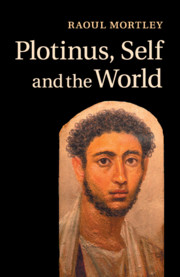Book contents
- Frontmatter
- Contents
- Preface
- Introduction
- 1 The individuated self and memory
- 2 Memory and forgetting
- 3 Ignorance, love and play
- 4 Plotinus’ Eros
- 5 The self: ‘and we too are kings’
- 6 Being and having
- 7 Self-knowledge
- 8 Art and the seduction of beauty
- 9 Face, image and the self
- Conclusion
- Bibliography
- Index
- References
9 - Face, image and the self
Published online by Cambridge University Press: 05 October 2014
- Frontmatter
- Contents
- Preface
- Introduction
- 1 The individuated self and memory
- 2 Memory and forgetting
- 3 Ignorance, love and play
- 4 Plotinus’ Eros
- 5 The self: ‘and we too are kings’
- 6 Being and having
- 7 Self-knowledge
- 8 Art and the seduction of beauty
- 9 Face, image and the self
- Conclusion
- Bibliography
- Index
- References
Summary
In an earlier paper I argued that Plotinus had a particular fascination with the face. This is worth stressing because it is possible to over-emphasise the transcendental, other-worldly Plotinus, hater of the flesh. Possibly we have this image because the very first words of Porphyry's Life of Plotinus point us in this direction: ‘Plotinus, the philosopher who lived in our time, seemed ashamed of being in the body’.
Porphyry continues by saying that he refused to have a painting or sculpture made of himself, indicating in Platonist vein that making an image of what was already an image, was pointless. Amelius, a philosopher in his circle, brought in a famous painter (the meetings were not closed) and he did a sketch from memory, which Amelius helped improve. Porphyry also seems to indicate a certain prudishness, as when a philosopher presented a paper on the necessity of having sexual intercourse with one's teacher in order to progress in virtue, a subject which was robustly debated in Plato's own circle according to the Symposium: Plotinus repeatedly got up to leave. He was well pleased with the refutation. He was seen, according to Porphyry, as trustworthy, morally upright and an example to others. Thus, Porphyry presents him as austere, other-worldly, abstemious, morally pure, and also as hostile to art. This image of Plotinus is profoundly influential and we have carried it into the interpretation of his philosophy, allowing the biography to dominate our understanding of the philosophy.
Information
- Type
- Chapter
- Information
- Plotinus, Self and the World , pp. 126 - 137Publisher: Cambridge University PressPrint publication year: 2013
